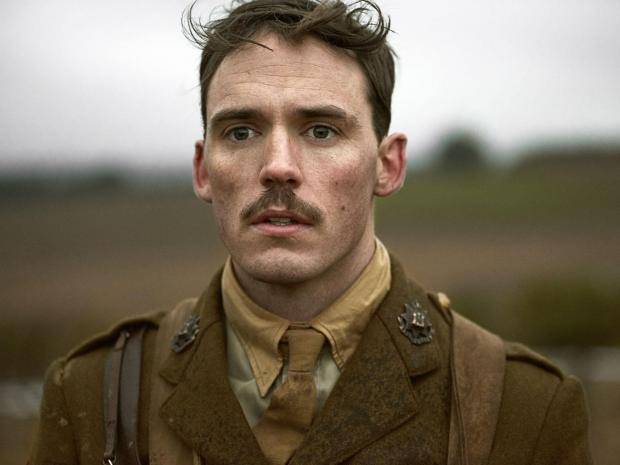At Filmhouse Cinema, Edinburgh now
Released almost exactly 100 years after the events depicted, Journey’s End is a bleakly clear-eyed take on the realities of trench warfare – the long stretches of staggering mundanity amidst seeping squalor, punctuated by jags of horrendous terror. It’s a subject covered many times before, not least in All Quiet on the Western Front and James Whale’s 1930 adaptation of this very story, but as “The War to End All Wars” finally trickles from living memory, it has eternal relevance.
The component parts of the story are instantly familiar – a keen-but-green young officer dropped into a muddy hell, an avuncular and paternal older officer loved by all the men, and a disillusioned captain rent asunder by the scale of the slaughter. Asa Butterfield is the wide-eyed naïf who foolishly requests a posting to the battalion of his old school friend Sam Claflin, now a whisky-sodden ball of eviscerated emotion just about keeping it together in front of the men. Crucial in this regard is Paul Bettany’s stoic lieutenant. No tale of lions led by lambs here, this is the officer class depicted as ordinary men faced with an impossible job in the few days leading up to the Spring Offensive.
Saul Dibb stretches a small budget as far as it will go, keeping the carnage to a minimum and staying true to source material. For the most part it plays as a particularly acidic chamber piece, the claustrophobia enhanced by the stellar camera work of DP Laurie Rose (Ben Wheatley’s regular collaborator) using candle light and queasily anaemic blues and greys to make the trench’s exteriors even less appealing. Dibb’s also assembled a tremendous cast, with the likes of Toby Jones and Stephen Graham bringing considerable craft to supporting characters.
Interestingly, and surprisingly, it’s the counter-intuitive casting of Claflin that is the film’s greatest master-stroke. He’s immeasurably better than he’s ever been before, convincingly pulling his psyche in about four directions at once – both enraged and resigned at the futility of it all, while still carrying out his duties in front of the other men in an outwardly phlegmatic air. There is also real love there for Bettany’s lieutenant, forced deep enough inside for this homoerotic charge to just about pass as subtext.
Journey’s End is a well-made, if fairly conventional take on the subject matter. It’s not going to mentioned in the same breath as Le Grande Illusion or Paths of Glory for example, but it juggles cliché and doomy predictability well enough that the parodic spectre of Blackadder Goes Forth never intrudes too much. Dibb is proving a safe pair of hands when it comes to character-driven period pieces following The Duchess and Suite Francaise. Surely an Austen adaptation can’t be far away.


Comments